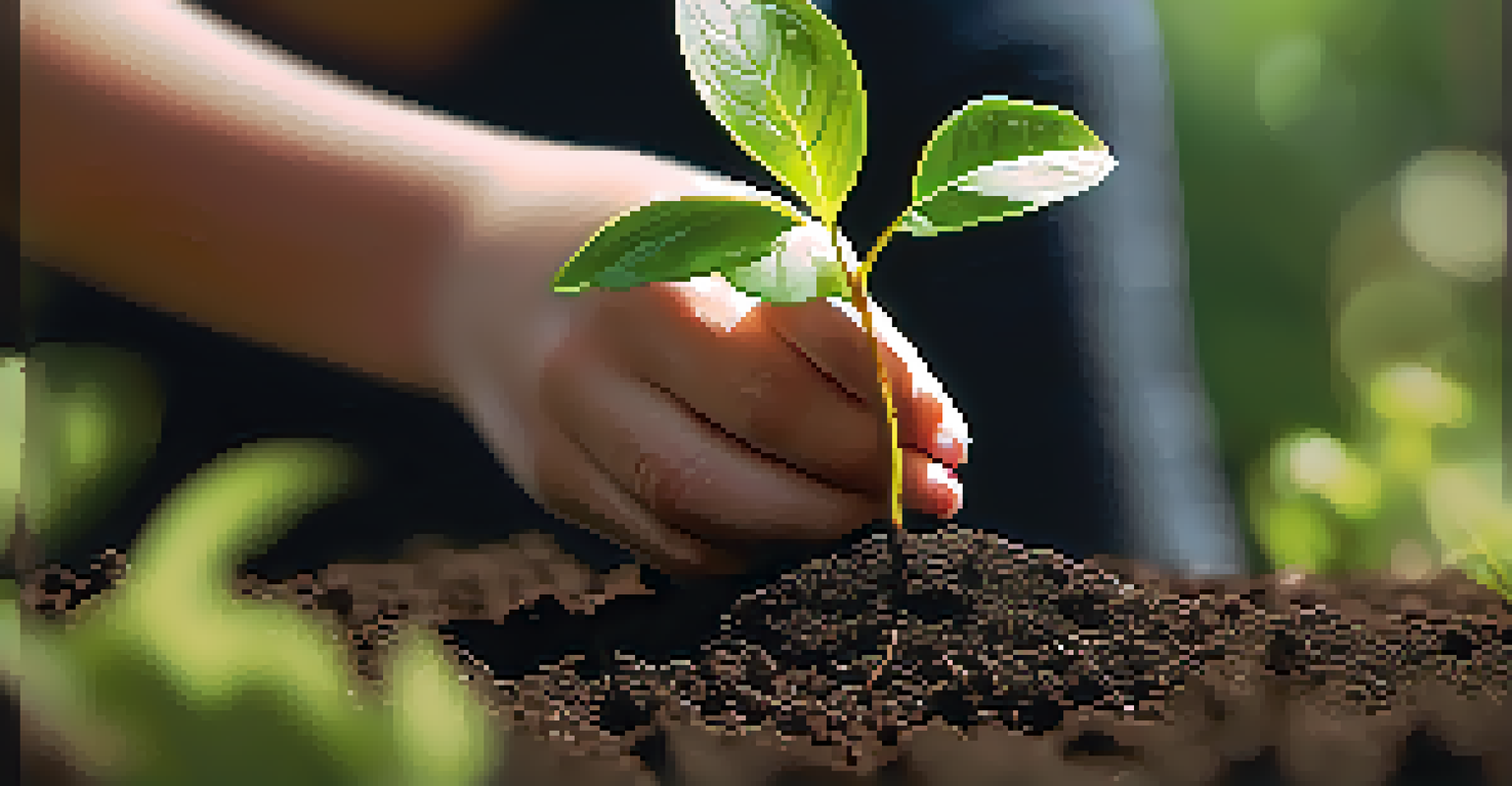Building Healthy Relationships for Improved Holistic Health

Understanding Holistic Health and Its Importance
Holistic health focuses on the whole person, emphasizing physical, emotional, and social wellness. It recognizes that our mental and emotional states can significantly affect our physical health. When we consider all aspects of our well-being, we can create a more balanced and fulfilling life.
The greatest gift of life is friendship, and I have received it.
For instance, a person may eat a healthy diet and exercise regularly but still feel unwell if they are experiencing relationship issues. Stress from interpersonal conflicts can lead to physical ailments, proving that emotional health is just as crucial as physical health.
By understanding holistic health, we can see that nurturing our relationships is vital for achieving overall well-being. It’s about creating a synergy between mind, body, and spirit, where healthy relationships play a pivotal role.
The Connection Between Relationships and Well-being
Healthy relationships contribute to our happiness and can even extend our lifespan. Studies have shown that people with strong social connections tend to have lower rates of anxiety and depression. When we feel loved and supported, our bodies produce oxytocin, often referred to as the 'love hormone,' which has numerous health benefits.

Conversely, toxic relationships can lead to stress, anxiety, and various health issues. Imagine carrying a heavy backpack; the more weight you add, the harder it becomes to move. Similarly, unhealthy relationships can weigh us down, hindering our ability to thrive.
Holistic Health Emphasizes Balance
Holistic health integrates physical, emotional, and social wellness, showing that nurturing relationships is essential for overall well-being.
Recognizing the impact of our relationships can motivate us to cultivate connections that enhance our well-being. It's essential to surround ourselves with people who uplift us and contribute positively to our lives.
Communication: The Cornerstone of Healthy Relationships
Effective communication is vital for building and maintaining healthy relationships. It involves not just talking, but also listening and understanding each other’s perspectives. Good communication helps to prevent misunderstandings and fosters trust, which is the foundation of any strong relationship.
We are not put on this earth to see through one another, but to see one another through.
Think of communication as a bridge connecting two shores. Without a solid bridge, it becomes difficult to cross, and misunderstandings can lead to conflict. By practicing open and honest communication, we can strengthen our connection and navigate challenges more effectively.
Moreover, being vulnerable and expressing our feelings can deepen our bonds. When we share our thoughts and emotions, we invite others to do the same, creating a safe space for growth and understanding.
Setting Boundaries for Healthy Interactions
Establishing boundaries is crucial in any relationship. They define what is acceptable and what isn’t, helping to protect our emotional well-being. Without clear boundaries, we may find ourselves feeling overwhelmed or taken for granted.
Imagine having a garden; without fences, it’s easy for weeds to invade and overtake the flowers. Boundaries serve as those protective fences, allowing us to nurture our relationships while keeping negative influences at bay. They help us maintain our individuality while still being connected.
Communication Strengthens Bonds
Effective communication fosters trust and understanding, acting as a bridge that enhances connections and helps navigate challenges.
Communicating your boundaries clearly is key. It’s not about building walls but rather setting up a healthy framework for interactions, ensuring that everyone feels respected and valued.
The Role of Empathy in Fostering Connections
Empathy plays a significant role in building strong relationships. It allows us to understand and share the feelings of others, creating a deeper emotional bond. When we practice empathy, we not only enhance our relationships but also contribute to a supportive environment.
Think of empathy as a bridge of understanding; it helps us to connect with others on a more profound level. When someone shares their struggles, showing empathy can be incredibly validating, making them feel heard and valued. This connection fosters trust and strengthens relationships.
Moreover, empathy can lead to better conflict resolution. By putting ourselves in someone else's shoes, we can approach disagreements with compassion, paving the way for constructive conversations and healthier outcomes.
Investing Time in Your Relationships
Just like a plant needs water and sunlight to grow, relationships require time and attention to flourish. Spending quality time with loved ones can strengthen bonds and create lasting memories. Whether it’s a simple phone call or a weekend getaway, prioritizing time together is essential.
Consider how you feel when someone makes time for you—it conveys that you are valued and important. When we invest time in our relationships, we nurture them, allowing them to thrive and develop deeper connections.
Empathy Fosters Connection
Practicing empathy deepens emotional bonds and contributes to a supportive environment, essential for resolving conflicts and strengthening relationships.
Additionally, shared experiences can enhance our relationships. Engaging in activities together can create a sense of unity and belonging, reinforcing the idea that we are in this together.
Embracing Change and Growth in Relationships
Relationships naturally evolve over time, and embracing change is vital for their longevity. As individuals, we grow and change, and our relationships must adapt to these transformations. Being open to change can lead to more profound connections and new opportunities for growth.
Imagine a tree that grows in different directions as it reaches for sunlight. Similarly, relationships can flourish when both parties are willing to adapt and support each other’s growth. This flexibility allows us to navigate life’s ups and downs together.

It’s also important to recognize that not all relationships will last forever. Sometimes, letting go of toxic connections is necessary for our well-being. Embracing change means being open to new relationships that can enrich our lives.